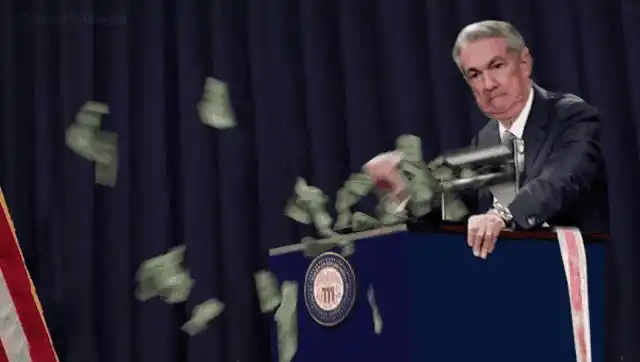One fiat/legacy/mainstream economist I truly respect is Josh Hendrickson (see #726878 or #820834). It's almost a cop-out by now, since he teaches a class on bitcoin and writes for the Bitcoin Policy Insititute etc.
He's one of us—though much more credentialed and more eloquent.
Anyway, I highly recommend everyone subscribe to his Economic Forces Substack, where he alternates weeks with Brian Albrecht. The best piece Josh wrote on money from 2024 was "Why Does the State Have a Monopoly on Money?" —so good and so important that it deserves its own MONEY CLASS post.
Josh asks why, in particular, governments run monopolies on money. Usually, monopolies produce a worse-quality product, at higher prices and achieves that by restricting supply (#798342). For money, that would mean not printing enough money and instead reaping the added benefit from above market-clearing price (?!). So can't be that.
A common answer that people will provide is that the state’s monopoly over money is motivated by its desire for revenue.
That one doesn't make much sense either: the numbers are way too small. What the U.S. government “earns” from the Fed is, these days, nothing (Fed has suspended remittances to Treasury for foreseeable future). In the heyday of zero-interest rates, their bond profits yielded some $100bn a year for the Treasury.
See, denlillaapan, that’s a lot of money printing profit right there.
Nope. Lots of dough for us mortals. For the U.S. federal gov it’s what they spent since last Friday. Emphatically not making a difference.
OK, but what about the bond market?! Aren’t the Fed buying bonds?
Yes, the bond market. Well, not these days since the bonds are runing off the balance sheet gradually. The Fed holds some 7trn in gov bonds (down from a peak of 9, but up from 4 pre-‘rona, or just below 1 before the GFC). So even generously, the maximum we can say is that the Fed covered was about 3trn of the increase in pre-rona government debt from 23trn to 36trn.
OK, but the Fed is backstopping all that lending. I don’t know what that means, or how exactly 3trn of net money-printing "supports" 13trn extra debt. It sure looks like people out there in global asset land are happy to hold a shitton of USTs??
Yes, having a central bank and being the global issuer of reserve currency is a fiscal benefit to the U.S. government. But not that much. They have much more to lose from ruining the “credible commitment” of maintaining CPI inflation at 2% (or at least paying lip service to that end).
And Josh shoots the revenue-rationale out of the water:
a state monopoly on shoes or steel or baseball cards would also generate revenue. What makes a monopoly on money different from these other hypothetical monopolies? Also, if the primary motivation is revenue, why do so few states seem like they’re trying to maximize the revenue they get from the monopoly? Debasing money and printing money cause inflation, which in turn causes people to hold less money. Thus, if inflation is a “tax” on money, wouldn’t inflationary policy reduce the tax base over time?
Put differently, the peak of the Laffer curve for maximizing revenue from money printing comes extremely fast.
The central bank must be trusted not to debase the currency, but the history of fiat currencies is full of breaches of that trust. —Satoshi Nakamoto
Also, if central banks/sovereign debase the money and rob of us real goods and services (#737272, #793537)... how long do you think that can last? How silly can the people be? Fool me once, fool me twice etc.
And therein lies the solution too: they're not. And the monetary sovereign must work hard to earn the privilege to keep siphoning off a little of their real goods and services.
What Josh points out in the piece is that a monopoly on money, contra other monopolies (or, like land holdings, #851956) “provides the unique ability to the state of generating a lot of revenue quickly.”
Here’s the dynamic problem:
debasement and money printing cause inflation. If people know the state will resort to inflation in an emergency, they will hold less money and inflation provides less emergency funding for the state.
So you must produce the magic trick of siphoning off real resources, in small scale and quietly, while maintaining the confidence of most people using your money. That credible commitment, as Josh gets into in the piece, explains why Britain even during the Napoleonic Wars experienced such little inflation—even though they went off gold and raised lots of money-printed revenue fast. That credibility was so well-anchored that investors/money-holders knew that after the war, the gov would shrink and austere/deflate the money supply back to size, providing no permanent monetary robbery.
Without that commitment, money demand would decline over time in anticipation that the currency would be permanently devalued in an emergency and this would make it difficult for the state to use the same tool of emergency finance in the future.
So, why does the government run money, have an “unquestioned monopoly”?
Credible enough a commitment that maintains money demand over time plus the political-economy rationales for quick funds in a pinch: “the story of the state monopoly over money is a political economy story.”
The full piece is well worth your time.
That's today's little money class,
Peace,
J
